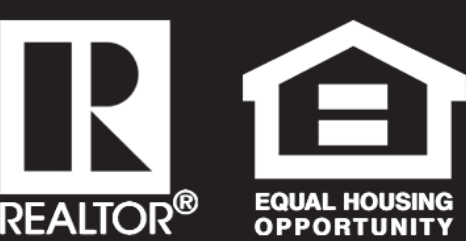Sale
Thinking of selling your property? Schedule a property evaluation appointment with Daniel Mota Lora to assess its value and find the right buyer. We’ll be in touch to confirm your appointment.

WHAT SHOULD I KNOW BEFORE SELLING MY HOUSE?
It is extremely important to be clear about the motives and reasons for moving, how much money you expect to receive and how much you need to pay the mortgage or to acquire a new property and the time the entire process will take.
A common mistake that sellers make is estimating the sale value of the property based on the prices that neighbors are asking, that is, on those properties that have not yet been sold. The real estate advisor should be able to provide comparables based on properties that were sold in the last 3 to 6 months.
Make these financial decisions before putting your home on the market:
- If you plan to buy another home and have money from the sale of your current property, include a contingency in the offer. That is, specify in the contract that the purchase of the home depends on the sale of your current property. If by chance you cannot sell your home, you will not be obliged to buy the other one.
- Make sure you qualify for financing if you are purchasing another property.
- Be aggressive in your sales price. Don’t waste time offering it at a much higher price than the market can pay. The only thing you can do with this is help your neighbor sell theirs fast!
- If you are working with a real estate agent, make sure you understand and agree to the compensation plan.
- Have a list of items you want to sell and a list of items you don’t want to sell. There are two reasons for making this list. Firstly, the buyer may assume that there are items included in the sale, for example curtains, lamps or fixed furniture. To avoid complications that could delay the sale, specify what is excluded and what is included in the sale. Second, the buyer may be willing to purchase items from your home, such as paintings or furniture. You will make a more objective decision about what you want to keep and what the value of the property is, if you think about it before being pressured to sell the property.
DIFFERENCE BETWEEN BEING FOR SALE AND MANAGING TO SELL
The difference between “being for sale” and “managing to sell” lies mainly in the sales price. Therefore, it is essential that the correct price is determined before placing the property on the market and that the competition is constantly analyzed to be able to adjust the price when necessary.
Errors when determining the sale price?
- Based on the properties of neighbors who have NOT managed to sell
- Try to recover the money invested in renovations
- Based on personal financial need
- Trying to sell without motivation or need, which makes it difficult to compete with owners who have a real need to sell.
- Start with a high price to “test” the market and lower the price in the future

7 strategies to determine the right price
- Use properties that sold in the last 3 months (up to 6 months if necessary) to determine the average sales price within the communit
- Analyze the available properties in your building or community to position your property as the #1 option on the market
- Renovations are considered an added value as long as you do not try to recover the cost
- When in doubt, hire the services of a professional appraiser.
- Be aggressive in the price, start with a very attractive price in order to create competition between buyers and have several offers to negotiate.
- The market never allows you to “give away” your unit. If you are too low on the actual price, buyers will bid above the list price. Remember that you are not obligated to accept any offer.
- Take into account the days that these units were on the market before being sold.
- When in doubt, hire the services of a professional appraiser.
Most common closing costs for the seller
- Mortgage balance: The balance of the existing loan, balance of the second mortgage and lines of credit on the home.
- Loan Fee: Administrative fee charged by the lender to repay the loan.
- Debt Release: Money owed to contractors and/or for court judgments or property taxes. These amounts must be paid before closing.
- Penalty for early payment: Some loans have a penalty for early payment of the debt.
- Recording Fees: Fees payable to document that debts have been paid in full.
- Commissions: The fees paid to the real estate brokers involved in the transaction. Generally 6% of the sales price and paid in full by the seller.
- Notary Fees: The fees charged by the notary to verify the identity of the signers of the document.
- Escrow Costs: Escrow agents receive money from the lender, pay all fees, collect deposits, and distribute the proceeds to the lender/seller.
- Title search fees: Proof that the seller has the legal right to sell the home. Title companies search public records and produce a commitment of insurance that certifies that the seller owns the home and lists the details of any liens or other claims affecting the title to the home.
- Seller Concessions: Amount the seller agrees to give in order to help the buyer pay his or her closing costs.
- Repairs: Work that the seller must complete (if applicable) before the sale, either as a result of the buyer’s negotiation or as a condition of the lender.
- Home Warranty: Protection plan for the buyer’s first year in the home.
- Termite Guarantee: Documentation used in some parts of the country that indicates the home is termite-free.

